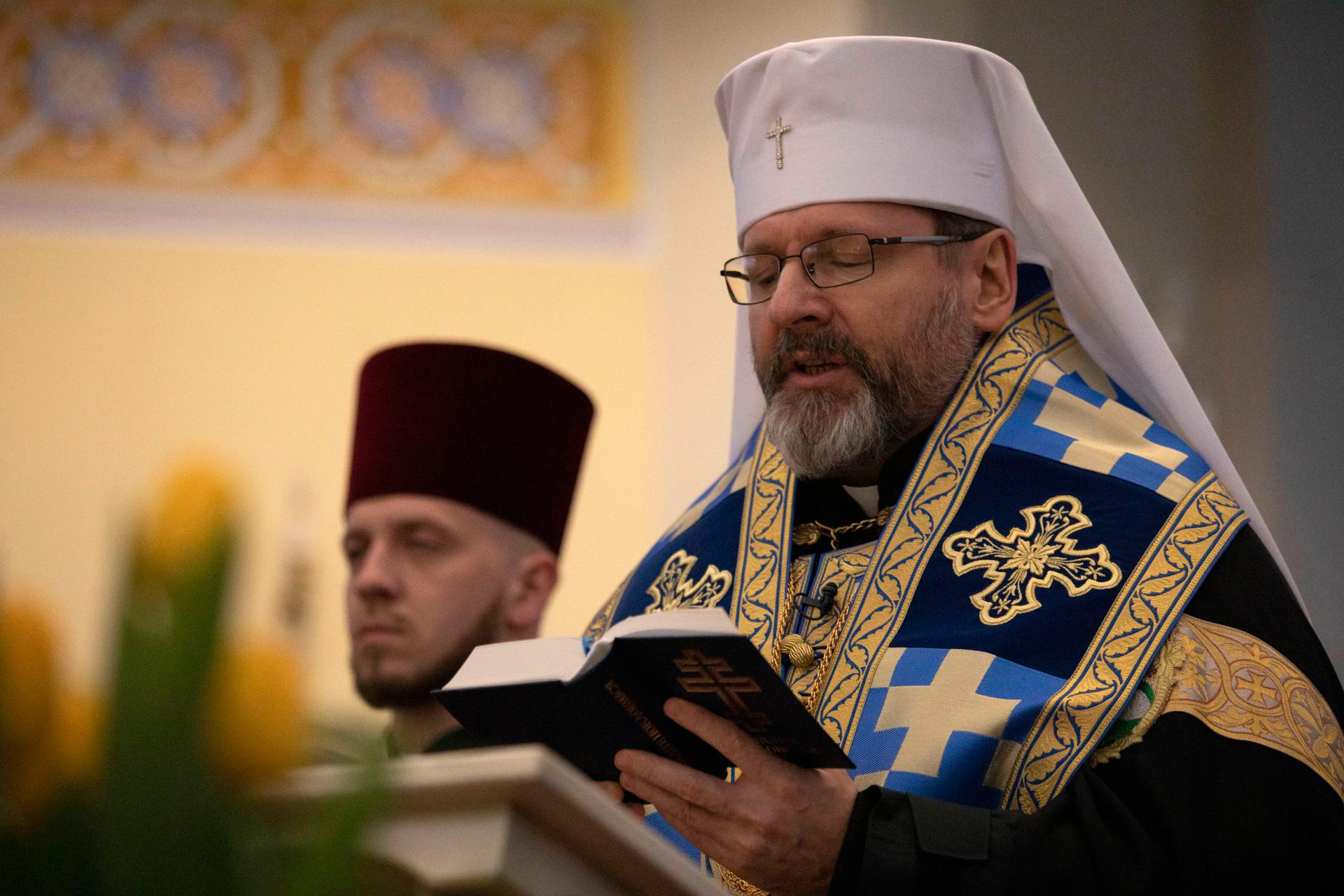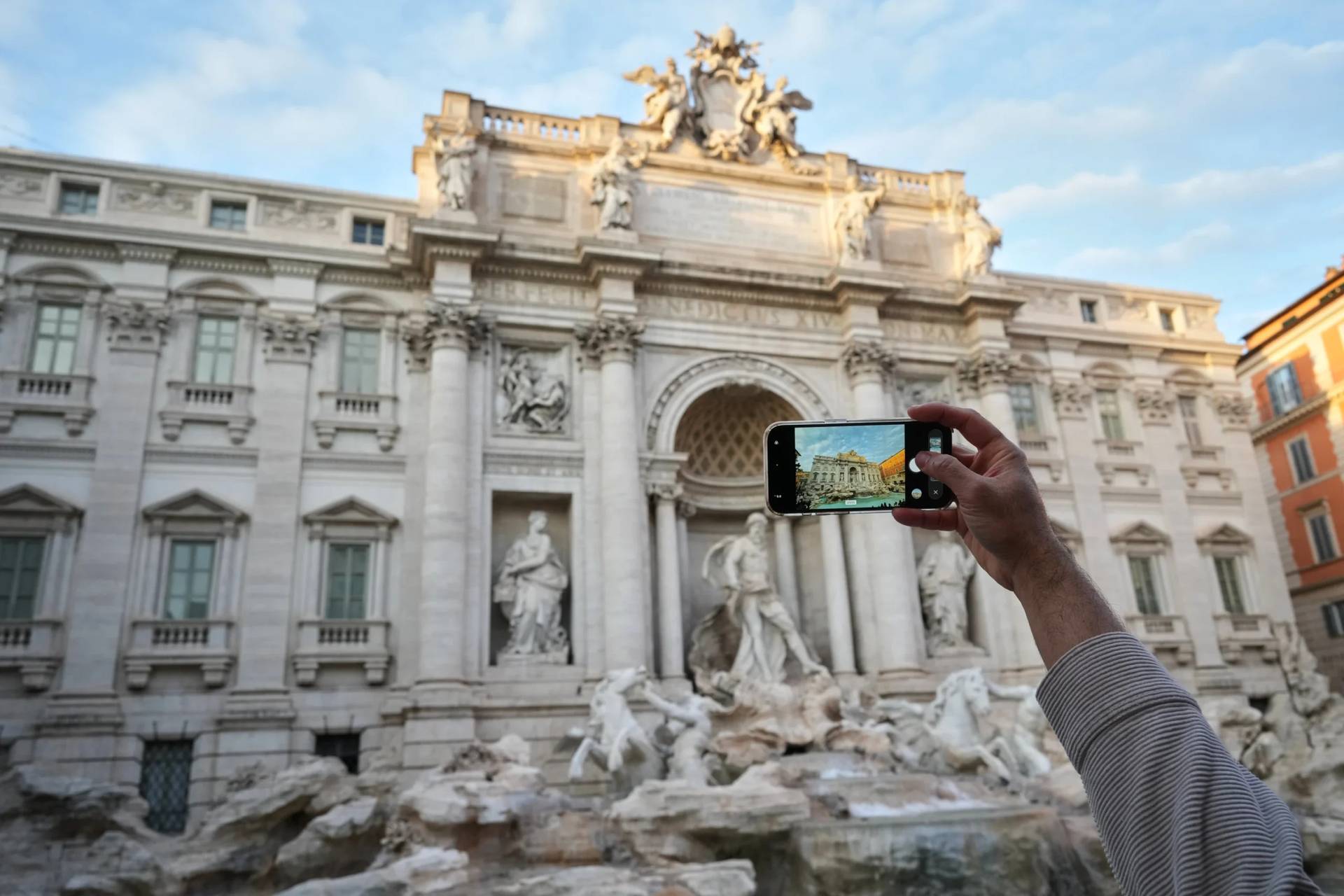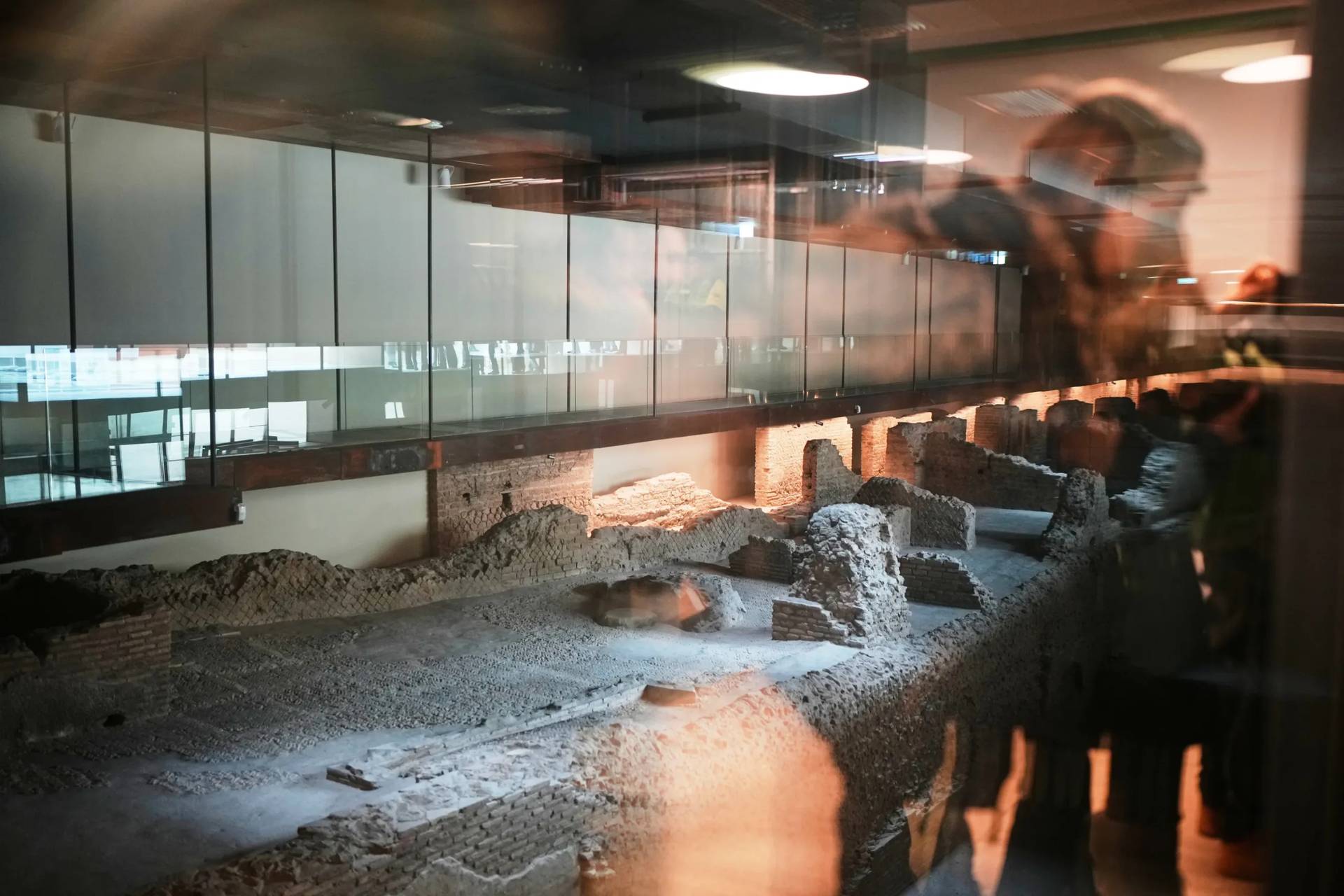ROME – Ukraine’s top Greek Catholic prelate has condemned the idea that the current war ravaging the country can be justified on grounds that Christian morality is being protected, saying the logic is similar to the fundamentalism espoused by Islamic terrorists.
Speaking via video connection at a May 23 event titled “Ukraine: A Peace to Build,” Major Archbishop of the Greek Catholic Church in Ukraine Sviatoslav Shevchuk said that the current war is inconceivable for many, because “for centuries Ukrainians and Russians lived together.”
He criticized the justifications given for the war by Russian Orthodox Patriarch Kirill, who vocally backed Putin’s Feb. 24 invasion of Ukraine on grounds that a growing western “Russophobia” is prompting international organizations such as the North Atlantic Treaty Organization (NATO) to strengthen itself in a bid to weaken Russia.
Kirill has also characterized the conflict as a holy war being waged against western secularism, using sermons to decry the violation of “God’s law” through the acceptance of homosexuality and the protection of LGBT rights.
In his remarks, Shevchuk criticized Kirill’s “Christian justification for this war,” saying he and others who repeat the same rhetoric “are truly exploiting the Christian message for a nationalist, Russian ideology.”
Shevchuk warned that the justification of the war on religious grounds “is increasingly close to the doctrine of ISIS, of the Islamic State.”
Supporters of the war among the Russian Orthodox, including Kirill, “propose the same arguments, but in this case under the banner of Christians,” Shevchuk said, noting that the conflict by many Russian Orthodox elites has been styled as “A metaphysical war…against universal globalization, above all the western and American” globalization.
“They warn of the dangers of religious globalization, the danger against true and authentic Orthodoxy,” he said. “This metaphysical war is a war against Western morality. They increasingly try to present Ukrainian society as being under the influence of western immorality, and because of that, it is an ideology of the anti-Christ.”
According to this view, he said, “Ukraine is carrying within it the seed of the anti-Christ, and because of this it must be eliminated. This is crazy, but in the name of this, they are killing people.”
Shevchuk spoke as part of a panel at an event organized by the Ambrosianeum Foundation exploring how actors at different levels of society can contribute to peacebuilding efforts in Ukraine as the war with Russia stretches into its third month.
Since Russia first invaded Ukraine, more than 10 million people have fled their homes and are living either as refugees abroad or are internally displaced in other regions of the country.
Until three months ago, “I could never in my life have imagined being the head of my Church in a time of war,” Shevchuk said, saying war was thought of as something of the past, but when the first missiles started to fall in the early hours of Feb. 24, “we woke up in a completely different reality than what we were used to.”
“From that day, Russia and Ukraine as they were before no longer exist,” he said, calling war itself “madness” and the intensity of fighting on the battlefield “diabolical.”
Many people have asked themselves why the war was waged and why such violence is necessary, he said, saying he too has asked himself the same question after speaking with people, meeting with survivors of bomb or missile attacks, or visiting cities liberated from Russian occupation.
“This war is truly causing a human tragedy never seen in Ukraine,” he said, saying this is highly significant, given that Ukraine during the Second World War was called “the land of blood.”
“Unfortunately, today this is repeated,” he said, noting that since the beginning of the war, around 500 people have taken refuge inside of his cathedral, including the underground bunker where civilians have gone to shelter from the bombs.
Shevchuk recounted seeing entire families, children included, who were killed and burned, and hearing stories of Russian soldiers shooting Ukrainian civilians based on their profession, so as to “eliminate every expression of the Ukrainian people.”
“This question must touch us all…Also cultural centers and all institutions: Why? In the third millennium, how is it possible?”
He also condemned the use of rape and sexual violence as a weapon, saying there have been “hundreds” of reported cases of women, men, and even children being raped in occupied cities in order to humiliate and terrorize the people.
Recalling his own military service in the Soviet era, Shevchuk said at that time, when rapes happened, it was thought that the commanders had lost control of their troops, but in the case of the current war, victims say soldiers “are encouraged and receive orders” to rape.
This and other violence, he said, is part of an “extreme evil” that, he said, is rooted in “an ideology, which has a name. It’s called the ideology of the Russian world.”
Stressing the need to pray for peace, Shevchuk said there is “a lot of fear and a lot of hatred” felt by the people, and the healing process will take years.
“I hope that as humanity, we are capable of stopping this massacre, this ideology, and to search for a final solution,” he said.
Archbishop Mario Delpini of Milan, who is currently attending the Italian bishops’ conference’s spring plenary assembly, also weighed in via video connection, thanking Shevchuk for his presence and for offering the message that “God operates in the hearts and calls to conversion – also people who are hostile to one another, so that they realize they are called to a higher fraternity.”
He assured Shevchuk of his personal prayers and solidarity, and that of the local church community in Milan, saying, “We share in your pain.”
Delpini said many were shocked by the outbreak of the war, and are deeply troubled by “the evil that people do,” which is evident from the images coming out of Ukraine.
He pledged ongoing support through the sending of medical and other essential supplies, and by hosting Ukrainian refugees who have fled the war, saying some refugees are being hosted by diocesan parishes and other structures in Milan.
On the need to build peace, Delpini said peace itself “is a system of relationships which are constructive for relations among people…not those commanded by political forces, but possible because of persuasion of people called to be brothers and sisters.”
“I pray to the Lord that a time of prayer, a time of personal encounters, a time of fraternity, begins,” he said.
Follow Elise Ann Allen on Twitter: @eliseannallen














